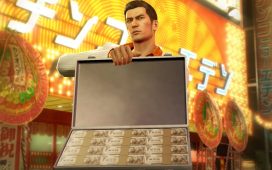China’s ByteDance, the world’s most valuable start-up, has scored a video game hit in Japan with martial arts-themed Combat of Hero, as the owner of popular app TikTok sharpens its rivalry with Tencent Holdings.
The casual mobile game, which was published by ByteDance-owned Ohayoo studio in Japan last December, has been the most downloaded free iOS title in the market for four consecutive days since March 7, according to data from apps analytics firm App Annie.
Combat of Hero, developed by Shenzhen-based independent studio PeakX Games, is also trending in other Asian markets, App Annie data showed. It was the third most downloaded free iOS game in South Korea as of Tuesday, while ranking between sixth and tenth place in mainland China so far this month.
That performance by Combat of Hero – in which a player must learn new kung fu skills as well as obtain weapons to defeat opponents and advance in gameplay – shows the measured approach taken by ByteDance to build up its video game credentials in major markets in its bid to challenge Tencent, which runs the world’s biggest games business by revenue.
ByteDance has moved to diversify its operations by forming a team of more than 1,000 for its video games business, following its acquisition of a number of game studios including Pangu Game Global and Shanghai Mokun Digital Technology. The Beijing-based start-up, valued at about US$78 billion last year, has relied mostly on advertising revenue to date, from its core content businesses that include TikTok’s Chinese version Douyin and news aggregator Jinri Toutiao.
Like other Chinese internet giants, ByteDance is building ecosystems, consisting of various platforms that can host multiple services to attract new users and keep their existing audience. Douyin, for example, has already integrated external online shopping links from Alibaba Group Holding’s Taobao Marketplace and Tmall platforms. Alibaba is the parent company of the South China Morning Post.
A representative from ByteDance did not immediately reply to a request for comment about the firm’s video game strategy.
The company is leveraging the international success of TikTok to promote its move into video games, according to analysts.
“Combat of Hero has reached the top rankings because ByteDance invested heavily in ads and promotion through TikTok and via partnerships, such as with Facebook,” said Zeng Xiaofeng, a vice-president at Niko Partners, which tracks Asia’s video games market.
Other analysts see that title’s release in Japan as a way for ByteDance to test its ability to run a campaign in the world’s third biggest video games market behind the US and China.
“This is not a serious attempt to crack the Japanese gaming market in any way, but looks more like an experiment for ByteDance to dip its toe there,” said Serkan Toto, chief executive of Kantan Games, a consultancy focused on Japan’s video games industry. He predicted the company’s casual game “will quickly fizzle out” in Japan.
Chinese video games developer NetEase, by comparison, has released several popular non-casual titles in Japan, including fantasy strategy game Onmyoji and battle royale game Knives Out.
Neuronads, a Chengdu-based start-up that helps distribute and promote video games overseas, estimated that a campaign for a hardcore game title, with high-end graphics that require large computing power, costs between US$12 to US$20 to bring in one user in Japan. By comparison, a casual game would cost as little as US$1.
“Marketing a game in Japan is the most expensive in the world, costing about 70% more than in the US,” said Mathew Chen, co-founder and chief operating officer of Neuronads.
ByteDance’s well-publicized initial effort in the games business was Music Jumping Ball, a casual game released via Douyin in February last year. TikTok recently teamed up with popular online game Fortnite for a promotional activity, showing the advances being made by ByteDance in the gaming world.
The company’s foray in Japan is a safe move, according to Niko Partners’ Zeng. “There are many Chinese game developers succeeding in Japan,” he said. “China imports more games from Japan than from any other country. The market for consoles and partnerships between Chinese publishers and Japanese developers has also opened up.”
(Abacus is a unit of South China Morning Post.)














